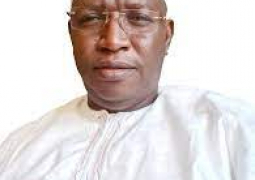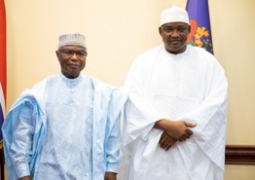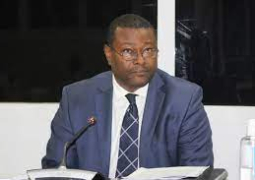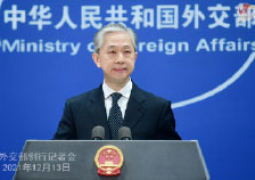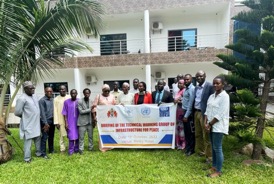
Held on 18 October 2022, the meeting was meant to brief the members of the Technical Working Group (TWG) on Infrastructure for Peace (I4P) on the implementation status of the I4P project. It enabled the participants to share their recommendations on how to strengthen the I4P project in the upcoming years.
Speaking at the opening ceremony of the meeting, the Deputy Permanent Secretary, Technical, Ministry of Interior, noted that the Infrastructure for Peace project will strengthen the capacity of the state and other existing agencies for peace and collaborative dialogue, while reducing the likelihood of current and future threats to peace and unity in The Gambia in a sustainable manner.
DPS Lowe further stated that The Gambia government, with support of development partners, has invested significantly in the country’s democratic transition in recent years and that it would continue to have strong interest in ensuring that the country remains peaceful for sustainable development.
He informed that the ministry has instituted a 5-member team to work on the I4P and that his office is in the process of establishing a peace building unit and creating regional and national councils for Peace and Social Cohesion (NCPS /RCPSC) as recommended by the Truth, Reconciliation and Reparations Commission (TRRC).
The UNDP Country Representative Madam Aisata De expressed appreciation to The Gambia government for its sustained commitment in the implementation of TRRC recommendations and the broader reform agenda for promoting social cohesion across the country.
“The government White Paper symbolises this commitment; especially the acceptance to establish the Peace and Reconciliation Commission (PRC) as the overarching national peace architecture for the country,’’ she said.
She noted that the existence of national infrastructure for peace is important in promoting dialogue and consultation while preventing conflict and enabling peaceful mediation when violence occurs in a society.
“The establishment of Government’s Peace Building Unit to be based at the Ministry of Interior, will not only complement the work of the Peace and Reconciliation Commission (PRC), but also, it will play a key role in promoting coordination within the government institutions while enhancing collaboration with development partners, private sector and civil society.”
The chairperson of the Technical Working Group on Infrastructure for Peace, Baboucarr Cham, explained that the TWG on I4P undertakes facilitation and coordination of programmes and activities relating to the establishment and operationalisation of the I4P.
“Once the I4P is operationalised, the National Infrastructure for Peace decentralised structures would further enhance achievements of the National Development Plan priority goal aligning good governance, respect for human rights, the rule of law, human security in all its facets; for empowering and sustaining national peaceful coexistence and social cohesion at grassroots and national levels’’, Mr. Cham affirmed.
The meeting was chaired by the National Network coordinator for WANEP, Mrs. Salama Njie.


